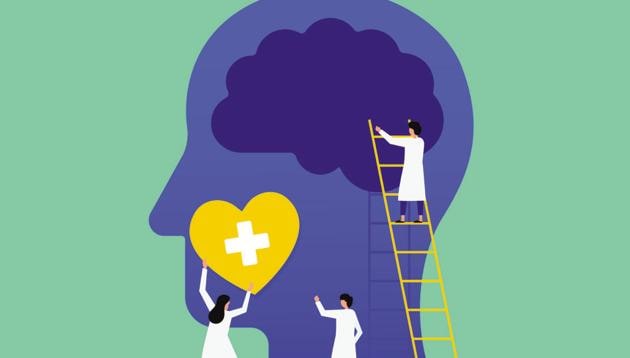In recent years, there has been a significant shift in the way mental health services are provided and perceived. With the increasing awareness and emphasis on mental well-being, modern mental health services have become more accessible and diverse than ever before. From online therapy platforms to virtual support groups, individuals now have a wide range of options to choose from when seeking help for their mental health concerns. This article will explore the various modern mental health services available today and how they are making wellness within reach for everyone.
The Rise of Online Therapy
Online therapy, also known as teletherapy or telehealth, has gained immense popularity in recent years. This form of therapy allows individuals to connect with licensed therapists and counselors through virtual platforms such as video calls, phone calls, or messaging. Here are some key points about online therapy:
Benefits of Online Therapy
- Convenience: Online therapy eliminates the need to travel to a therapist's office, making it more convenient for individuals with busy schedules or mobility issues.
- Accessibility: Online therapy can be accessed from anywhere with an internet connection, ensuring that individuals in remote areas or with limited access to mental health services can still receive the support they need.
- Privacy: Some individuals may feel more comfortable opening up about their mental health concerns in the privacy of their own space, away from the potential judgment of others.
- Cost-effective: Online therapy is often more affordable than traditional in-person therapy, making it a cost-effective option for those on a budget.
Considerations for Online Therapy
- Internet connection: A stable internet connection is necessary for a seamless online therapy experience.
- Security and confidentiality: It is important to choose a reputable online therapy platform that prioritizes the security and confidentiality of client information.
- Therapist qualifications: When choosing an online therapist, it is essential to ensure that they are licensed and qualified to provide mental health services.
Virtual Support Groups
Virtual support groups offer individuals the opportunity to connect with others who are facing similar mental health challenges. These groups are typically facilitated by mental health professionals and provide a safe space for participants to share their experiences, offer support, and learn coping strategies. Here are some key points about virtual support groups:
Benefits of Virtual Support Groups
- Connection: Virtual support groups help individuals feel less alone in their struggles by connecting them with others who understand what they are going through.
- Validation: Sharing experiences with others in a virtual support group can help individuals feel validated and understood.
- Learning opportunities: Virtual support groups often provide information on mental health topics, coping skills, and resources to help participants better manage their mental health.
- Accessibility: Virtual support groups can be accessed from anywhere, making them a convenient option for individuals who may have difficulty attending in-person meetings.
Considerations for Virtual Support Groups
- Confidentiality: It is important for virtual support groups to have guidelines in place to protect the confidentiality of participants.
- Facilitator expertise: Virtual support groups should be facilitated by mental health professionals who have experience in group therapy and creating a safe and supportive environment.
- Technology requirements: Participants should have access to the necessary technology (such as a computer or smartphone) and internet connection to participate in virtual support groups.
Mobile Mental Health Apps
Mobile mental health apps are another modern tool that individuals can use to support their mental well-being. These apps offer a variety of features, including mood tracking, guided meditation, stress management techniques, and mental health resources. Here are some key points about mobile mental health apps:
Benefits of Mobile Mental Health Apps
- Convenience: Mobile mental health apps can be accessed anytime and anywhere, allowing individuals to incorporate mental health support into their daily routines.
- Personalization: Many mental health apps offer personalized content based on the user's needs and preferences.
- Accessibility: Mobile mental health apps are often more affordable than traditional therapy and can be a valuable resource for individuals who may not have access to in-person services.
- Self-management: These apps empower individuals to take control of their mental health by providing tools and resources for self-care and self-reflection.
Considerations for Mobile Mental Health Apps
- Evidence-based: It is important to choose mental health apps that are based on evidence-based practices and developed in collaboration with mental health professionals.
- Privacy and security: Users should review the privacy policy of mental health apps to ensure that their data is being handled securely and confidentially.
- Effectiveness: While mental health apps can be a valuable tool, they are not a substitute for professional mental health care. Individuals experiencing severe mental health symptoms should seek support from a licensed therapist or counselor.
